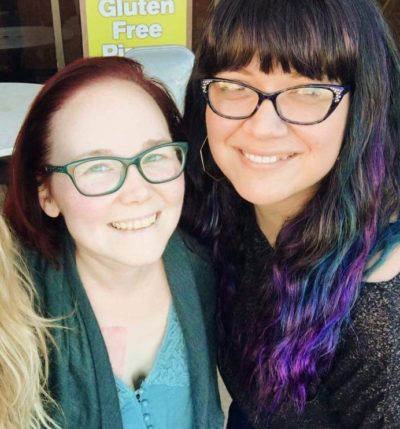The push down
I am a very busy person. I sometimes don’t realize how busy I am. I work full time. I study. I write and research for MastAttack. I contribute to care plans and work with patients. I am an involved auntie. I spend a lot of time with my family. And of course, I am sick, and being sick accounts for the majority of my life.
I like making plans. I have always liked making lists and checking things off. These days, I have so much to do that I have to be really organized to get anything done. Everything goes into my planner. I read it every day as soon as I wake up to ground myself and focus. Every task has an assigned completion date and time allotment. If I have ever agreed to answer a question for you at a later time, or to research something, or to do something for you, you are in that planner.
My planner keeps track of everything I do and, often, everything I plan to do, but which I do not complete by the anticipated time. As time goes on, I accumulate more and more outstanding tasks. For the most part, they get completed eventually, but it is sometimes several days or weeks later than intended. Like everything else in my life, my ability to stay on task is fully dependent upon my health. Because my health is unpredictable, everything else in my life becomes unpredictable, too.
For the last several months, I have been trying to buy a home. I have been trying to find a two family home so that my parents could live in one while I live in the other. Initially, it looked like the easiest option would be to level my parents’ house and build a two family on that property. Then we looked at existing two family homes. Then we looked into modifying a single family home to make it two separate apartments. The last eight months has been consumed by this.
Yesterday, we looked at a house that largely met all of our needs. We discussed making an offer and ultimately decided against it. For the most part, the experience of looking for a place to buy has not been particularly upsetting me, but yesterday, it upset me. I’m not sure why. I suddenly felt overcome by the weight of all the emotional things I have tied up in this house hunt.
For a disabled woman, I am in a pretty plum position right now. I work full time for an employer that accommodates and respects me. I can afford to pay my living and medical expenses and have some left over to travel and do fun things. I have excellent insurance. I have tried hard to set myself up as much as I possibly can for the eventuality of becoming unable to work and dependent upon disability benefits. With the exception of traveling, I live pretty frugally. I live in a very small rented apartment. I don’t eat much. I don’t really shop unless I need something specific. Aside from having two dogs who both need healthcare and medication, my health is my only major expense. This has afforded me an enviable financial position for someone as sick as I am.
I am recently coming to grips with the fact that while I am in a good position now, it could all be gone in an instinct. Any instant. Maybe this one right now. Maybe one tomorrow. I could become unable to work immediately. And while I have been able to save some money, it is impossible for me to put aside enough money fast enough for me to not have to worry about it. There’s just not enough time. No matter what I do or how well I plan, my financial situation will inevitably become unstable. This disease has robbed me of the ability to plan for my future.
My fear of instability is largely what has driven my search for a new home this year. I have lived in my current apartment for years. I don’t have any reason to think I’ll need to leave soon. There are things I don’t like about the apartment but it is cheap and meets my needs. But I don’t own this place and that means that the stability of my housing situation is fully dependent upon other people. I don’t have family in a position to take me in. I can’t live in my parents’ house. That means that if I suddenly had to move and couldn’t work, I have no idea where I would even go.
I have this life now with a safe, clean place to live near my support system, good healthcare, and a stable job that allows me to support myself well. But this could all be gone in an instant. I could do everything right, make every decision right, and still end up with nothing. That is almost certainly what will happen.
There are moments when my fear consumes everything. It is my omnipresent companion, the harbinger of a coming plague. It threatens to devour every good thing in my life, to just eat and eat and eat until there’s nothing left.
So what do you do when this life you love will be gone soon? You enjoy it. You use all your strength and you push down this fear and you enjoy it.
I will never be able to save enough money to keep me financially stable and independent. If I spent nothing on anything except my absolute life essentials, it wouldn’t matter. I try to remember this on the days when I book airfare or buy myself a new dress. I do not have to feel guilty that I am not saving every single cent I can when it wouldn’t matter anyway. It is okay to relish being alive. It is okay to have as much fun as I can. It is okay to spend money to be comfortable and happy.
Last night, as I was making notes about projects I plan to complete in 2018, I was inexplicably overcome with this sense of calm. As I looked over my upcoming trips noted in my planner calendar, for the first time in a long time, I felt perfectly at peace. It is okay to spend money to go to Utah and California and Australia. It is okay to use this body for everything it is good for until the time when it is no longer good for anything.
I’m heading to Florida for a week after Christmas to visit my Masto Little Sister, Nicole, and my dear Kristina Brightbill (who is making AMAZING gains). I’m going to enjoy every minute of it.


